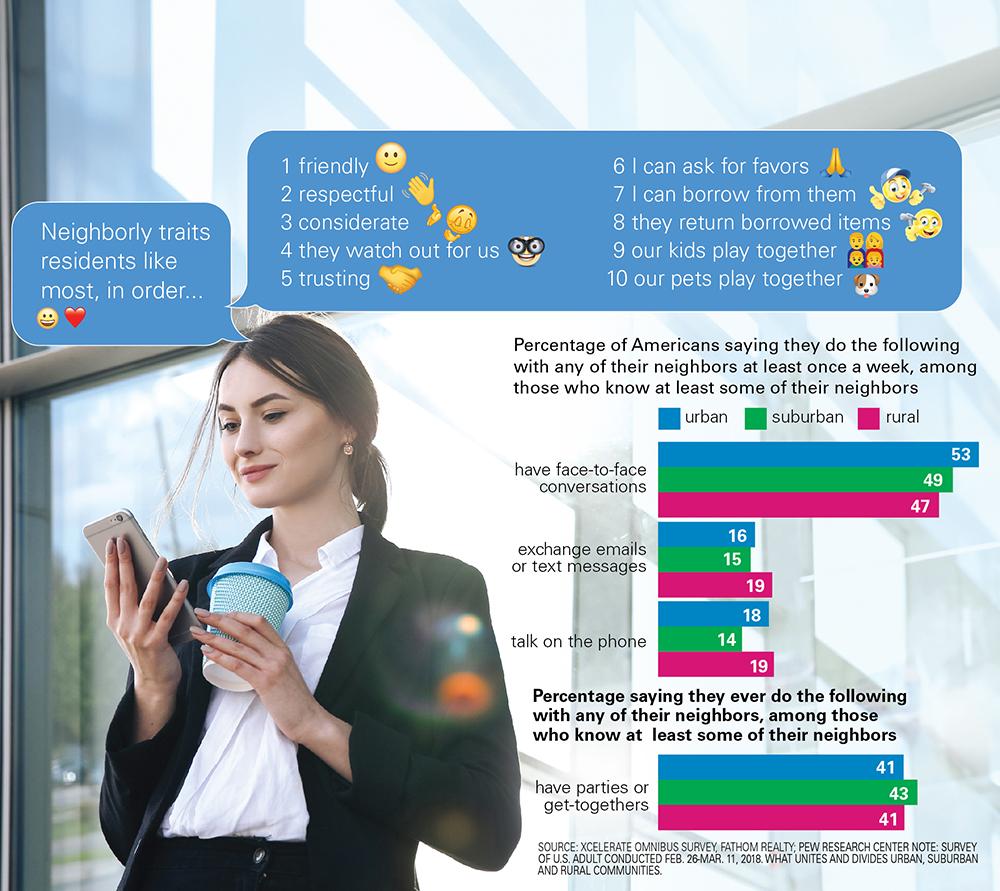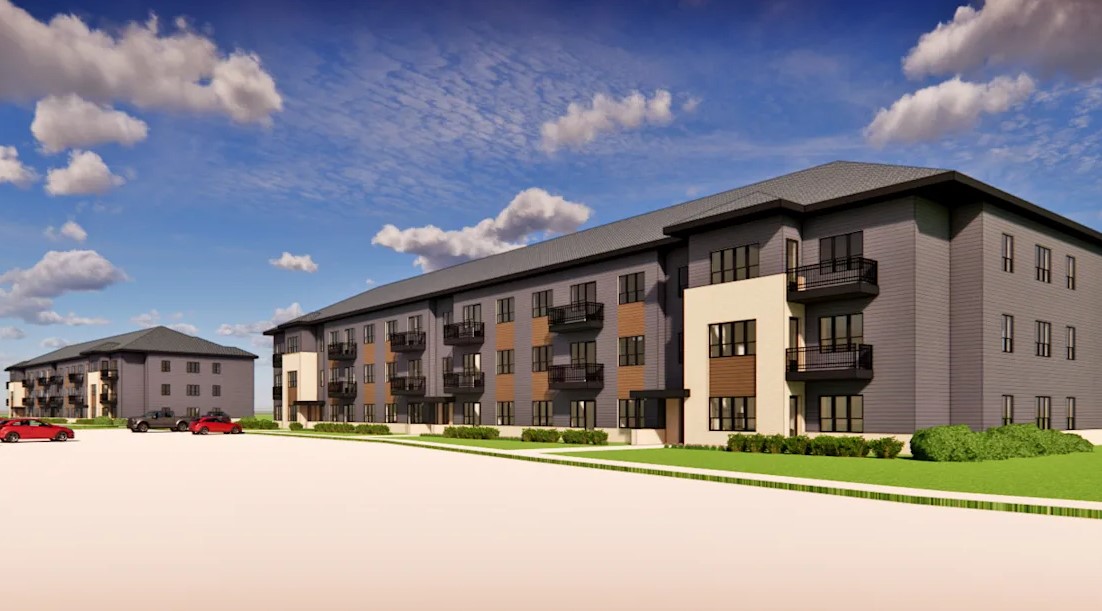Some luxury apartment managers believe residents are less likely to move-out if they know their neighbors… and every move out costs thousands of dollars.
At 1 Martine, a luxury apartment building in downtown White Plains, N.Y., the residents recently enjoyed a trip to a local ice-skating rink, an evening of “Radio Bingo” and “A Night of Magic and Mystery” with professional illusionist Jeanette Andrews.
And that’s just in the month of January.
The managers at 1 Martine regularly spend hundreds or thousands of dollars for each event and hold three to four such events at each of their communities every month. That makes the managers at 1 Martine different than many apartment companies.
“A lot of buildings, they have cookies in the lobby and call that an event,” says Kathleen Unger, resident activities manager for Ginsburg Development Cos. (GDC), based in Valhalla, N.Y. Her full-time job is to plan events for six GDC properties in Westchester County, N.Y., including 1 Martine.
The property managers interviewed for this story believe that residents are much less likely to move to another apartment building in the same area if they feel a connection to the community they live in and have a chance to make friends with their neighbors.
“The events are certainly a factor in their decision to stay,” says Gregg Smolev, VP of residential real estate for GDC.

Events help apartments compete
Rent growth is likely to slow down in 2024 as developers open hundreds of thousands of new apartments and sometimes struggle to lease them up, according to market research firm RealPage.
That’s true for sub-markets like downtown White Plains, where the skyline includes three building cranes. Thousands of new apartments are under construction within a few blocks of GDC’s 1 Martine property.
“Many markets have softened and concessions have returned for the first time in a few years,” says Seth Otey, VP ZRS Management, a third-party management company.
As rents stagnate and expenses like financing costs and property insurance stay high, 8
Some property managers plan to spend less on resident events this year. “They’re not getting the engagement or return on investment out of them in some cases,” says Sarah Yaussi, VP of business strategy for the National Multifamily Housing Council (NMHC).
Other property managers expect to maintain or increase the number of events they plan for their residents.
“Our plan is to expand frequency of these gatherings in the year ahead,” says Elie Rieder, CEO of Castle Lanterra, a value-added investor based in Suffern, N.Y. that owns 12,000 units across the country.
Castle Lanterra offers its residents a wide range of events from happy hours and food trucks to holiday celebrations and fitness classes. “We also sponsor sign-up events with private and government assistance organizations at properties with a less affluent demographic,” says Rieder.
These events help Castle Lanterra attract new residents and keep its existing residents, says Rieder.
“At some of our more socially active properties, especially those with young families, the events are a large part of the leasing pitch,” says Rieder.
It’s difficult to prove that resident events are the motivating factor for apartment renters signing or renewing a lease. But survey data suggests that resident events are “really important to their experience and lease-decision making,” says NMHC’s Yaussi.
About a third (31 percent) of renters, say that one of the biggest benefits of renting an apartment are the community’s “lifestyle and amenities,” according to the NMHC/Grace Hill 2024 Renter Preferences Survey. That’s up from 27 percent in 2022.
“I am certain if you track two otherwise comparable properties, the one with regular community events would experience better retention and higher rents than the one without such activities,” says Castle Lanterra’s Rieder.

Less turnover pays for events
Convincing even a few renters to renew their leases instead of moving out can save apartment owners a substantial amount of money.
Anywhere from 25 percent to 50 percent of renters at an apartment property move out in a typical year, according to apartment experts. Some move-outs are inevitable, as renters move to other cities or buy single-family houses. However, many renters move to newer apartments in the same area—sometimes to take advantage of rent concessions at new properties.
Every time a renter moves out, their apartment has to be made ready for a new renter to move in. That includes new paint and basic repairs, in addition to replacing any worn-out fixtures and appliances.
“It’s going to cost us $1K minimum, and very often more than that, sometimes significantly more,” says GDC’s Smolev. “Generally you’re going to be running into the thousands of dollars.”
Property managers don’t receive rent while an apartment is empty and the make-ready process can take at least a few weeks. In markets where new, vacant apartments offering generous concessions compete for residents, apartments may stay vacant for much longer.
“If you have friends at an apartment community, if you know your neighbors, if you know somebody will go get your package for you if you’re out of town—those kind of variables make you less likely to move within a given submarket,” says ZRS’ Otey.
Most apartment communities that hold regular events for their residents pay for those events through their regular maintenance budgets, according to the experts interviewed for this story.
A handful charge residents a monthly fee to help pay for the events. For example, residents at The Hub, a new apartment community in downtown Brooklyn, pay a community fee in addition to the regular, monthly rent that helps pay for the almost daily events ranging from fitness classes to first-run movies.
Other communities also charge their residents an “amenity fee,” though this fee rarely contributes to the cost of events.
“Amenity fees are typically more about upkeep of physical spaces than funds spent on residents,” says Katrina Greene, director of property management at Gray Capital.
For example, GDC charges residents at 1 Martine a monthly amenity fee of $75 in addition to the rent and uses those funds to maintain common areas at its properties that include a fitness center and a large, rooftop garden.
“The amenity fee really doesn’t even cover maintenance costs of those spaces,” says Smolev.
Many older apartment communities don’t have common areas that can hold a lot of residents. Without common spaces an event is usually something like handing out breakfast at the entrances one morning, or sending pumpkin carving kits and a pumpkin to their door so they can carve a pumpkin and post photos.
“You may hold your resident event at a local restaurant to do a happy hour with appetizers,” says ZRS’ Otey.
Properties with little indoor common areas might section off part of a street to have a block party, complete with kegs and a DJ.
“We all learned to improvise and recreate the definition of events during the pandemic, so big clubhouses aren’t necessary,” he said.
How to measure success
Residents may be willing to show up for more than an hour when a food truck visits a property, while a more typical event might draw five to 20 percent of the residents, according Castle Lanterra’s Elie Rieder.
That is sometimes enough to fill the lounge or clubhouse to capacity.
“Through our resident portal and surveys, we actively seek feedback on the types of events residents would like to see,” says Capital Square Living’s Kreicar.
Residents may also post on social media or leave positive reviews of their community— another benefit for property managers.
“The quality of the attendee’s engagement is more important than the quantity of people who attended,” says Greene. “If a resident posted about the event on social media or made a connection with other residents then that has a greater value than someone who comes to eat and leave.”
Events that don’t earn positive feedback often result from a failure to send notice to residents or a lack of thoughtfulness in the type of event or the timing, said Greene.
“We promote events ahead of time on social media, our resident portal, and via email blasts, so that everyone knows when we are hosting them,” says Nikki Crosby, VP of marketing for Thompson Thrift.
Different renters want different events
The renters in different apartment communities respond differently to different kinds of events. Managers often survey their residents and offer a variety of gatherings.
“Some people would feel more comfortable in a setting of 10, whether it’s a small cooking demonstration or a meditation session,” says ZRS’ Otey. “Maybe that’s their comfort level.”
“The young professionals at one building might be interested in a seasonal party themed around “ugly Christmas sweaters,” says GDC’s Unger.
At luxury communities, residents might expect events to show off their lifestyle.
“We have a high-rise in Dallas that does very, very sophisticated, curated events where they serve fresh, cold lobster tails and signature cocktails,” says ZRS’ Otey.
Event managers must often balance sets of renters at the same community who want different kinds of events.
Renters at GDC’s Rivertides properties in Yonkers, N.Y., include a number of young families.
“I do a kid’s Easter egg hunt and that’s one of the events for that month,” says Unger. “Everyone who doesn’t have kids or is single might prefer an extra happy hour.”
Against loneliness
Property managers agree that offering events might help residents improve their mental health and avoid loneliness. For example, in large communities with several hundred units, some residents might not have holiday plans.
“It can be a very lonely time for people,” says ZRS’ Otey. He thinks that by hosting a Thanksgiving potluck or an event that allows renters to mingle with other friendly people in the community, instead of sitting alone in their unit, can add a lot of value.
The connections that residents make with each other at resident events can be important in other ways.
A poll conducted by Branded Research in 2018 found that nearly half of U. S. consumers believe that knowing their neighbors would benefit them during a natural disaster. Just over one in five said that knowing their neighbors has actually helped them in such situations.
Events standard in niche communities
Many specialized apartment communities have offered events for years and they affect what renters expect in conventional apartment communities nearby.
For example, the University of Indiana campus has changed the apartment market in Bloomington, Ind., where conventional apartment managers often serve residents who have lived in Bloomington’s student housing properties, where they became used to a full calendar of events.
These renters expect events to be offered “even when they ‘graduate’ to more conventional, non-per-bed communities,” says Greene.
Managers at other niche communities—like military housing—say events play an important role for their residents.
“One of our event goals is to help create a sense of community for military families who are often far away from their home and support systems,” says Cindy Farless, regional community services director for Liberty Military Housing.
Liberty’s events range from educational seminars to block parties and include annual Mother’s and Father’s Day events, a Halloween Bash, a Thanksgiving dinner, and other holiday events, including a tree giveaway.
Liberty also offers events geared toward helping newly transferred military personnel experience the new city their military service has brought them to.
In the Navy Region Southwest, Liberty hosts events with the San Diego Zoo, San Diego Padres, and Sea World.
“We would lose tenants if we stopped offering events. Our events are a key part of what makes our company different,” said Farless.













